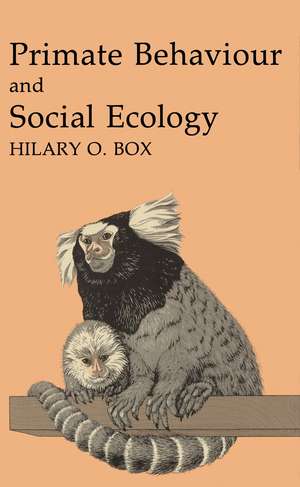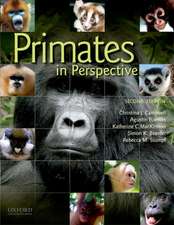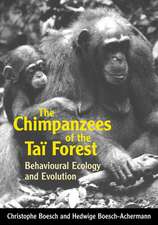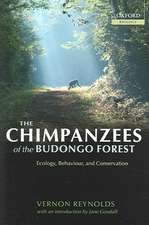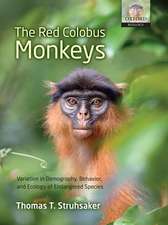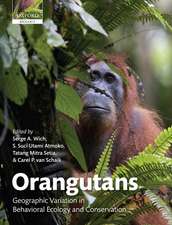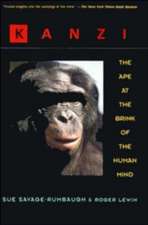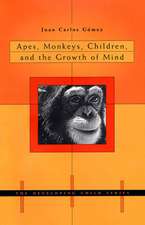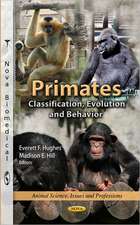Primate Behaviour and Social Ecology
Autor Hilary O. Boxen Limba Engleză Paperback – 8 oct 2011
Preț: 637.78 lei
Preț vechi: 750.33 lei
-15% Nou
Puncte Express: 957
Preț estimativ în valută:
122.06€ • 126.09$ • 101.58£
122.06€ • 126.09$ • 101.58£
Carte tipărită la comandă
Livrare economică 26 martie-09 aprilie
Preluare comenzi: 021 569.72.76
Specificații
ISBN-13: 9789401089432
ISBN-10: 9401089434
Pagini: 296
Ilustrații: VIII, 284 p.
Dimensiuni: 140 x 216 x 16 mm
Greutate: 0.35 kg
Ediția:Softcover reprint of the original 1st ed. 1984
Editura: SPRINGER NETHERLANDS
Colecția Springer
Locul publicării:Dordrecht, Netherlands
ISBN-10: 9401089434
Pagini: 296
Ilustrații: VIII, 284 p.
Dimensiuni: 140 x 216 x 16 mm
Greutate: 0.35 kg
Ediția:Softcover reprint of the original 1st ed. 1984
Editura: SPRINGER NETHERLANDS
Colecția Springer
Locul publicării:Dordrecht, Netherlands
Public țintă
ResearchCuprins
of the book.- Primates as an order.- 1 Social Ecology.- Functional questions.- Evolutionary social ecology.- Proximate social ecology.- Interspecies correlations.- Food.- Primates as prey.- Primates as predators.- Intraspecies social behaviour and ecology.- Ecological variables and social development.- Behaviour in captivity.- 2 Behavioural Responses to Change-Natural Events I.- Behaviour associated with birth.- When and where birth takes place.- The social context in which birth occurs.- Responses to new infants - caregiving activities.- Allomaternal behaviour.- Male interactions with infants.- Orphans.- Responses to dead infants.- Infants and the reproductive success of their mothers.- Kidnapping.- Infant use in intermale encounters.- Infanticide.- 3 Behavioural Responses to Change-Natural Events II.- Peripheralization.- Isolation.- Intertroop movement.- The formation of new social units.- Troop fission.- The formation of new social units in captivity.- Experiments in social discrimination.- Introducing strange individuals into established social units.- Reintroduction of individuals into their social units.- The removal of individuals from established social units.- Responses to dead individuals.- Social differentiation of kin.- 4 Behavioural Responsiveness - Experimental Studies.- Responsiveness to new situations.- Responsiveness and life strategies.- Feeding strategies.- Responses to danger.- The influence of social context.- 5 Assessments of Cognitive Capacity.- Neurological correlates.- Behavioural correlates.- Self-awareness.- Language.- Piagetian techniques.- The use of tools.- Evolutionary hypotheses.- 6 Socially Mediated Learning.- Evidence for social traditions.- The question of culture.- Mediating influences.- References.- Author Index.
